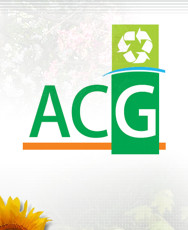
How does it work?
The recycling process is completely automatic – food waste is
shredded, dried and sterilized without human intervention.
Everyday usage simply involves the filling of the feeder with
the waste to be processed. The only requirement of the operator
is that they properly segregate the waste before filling the
feeder. A list of products suitable for processing is contained
within the instructions for use.
Garbage can be disposed of at any time, as needed throughout the
day, and is subject only to the maximum processing capability of
the bioreactor – a daily limit of 120 kg of waste.
Once a day, at 6 o’clock in the morning, the machine
automatically ejects the recycled matter into a special
container designed specifically for this use. The recycled
matter is a high quality compost which research has shown is
extremely beneficial for the healthy growth of a wide range of
plants. Each 100kg of food waste produces approximately 15kg of
compost which, when mixed with soil in a ratio of 1kg of compost
to 4kg of soil, will provide a valuable source of fertilizer for
your garden or greenhouse.
For your safety we recommended that the bioreactor be cleaned
and maintained only by suitably trained personnel.
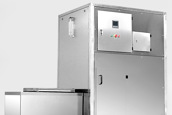
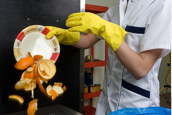
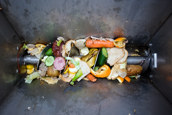
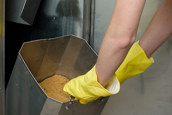
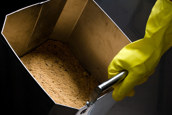
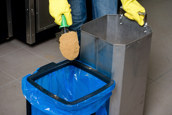
Installation
The only installation requirement for the KWM 100 bioreactor is
that it should be placed in a ventilated room with a floor area
of at least 7 m². There is no need for any plumbing to remove
fluid waste because as much as 85% of the water contained in the
waste is evaporated into the atmosphere.
Technical data
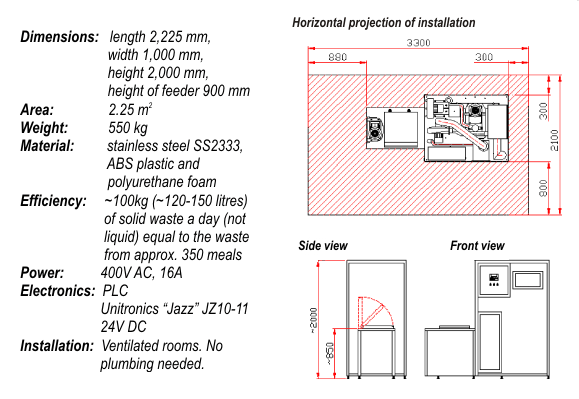
More information about the bioreactor can be found in the
instructions for use where you can download an
instruction
manual.
Economy
The EU legislation (EC regulation 1774/2002 and consequent
regulations in member states) concerning catering and
gastronomic waste, as well as different regulations regarding
specific hygienic aspects of the handling, storage and transport
of the kitchen waste, lead to that this waste can not be treated
together with the general waste stream and substantial costs are
consequently generated.
A study shows that the cost of kitchen waste removal and
processing in most EU member countries runs between 0,23 € and
0,75 € per kilogram.
The KWM-100 can process up to 100 kg of wet waste per day giving
gross savings of at least 23 € per day. The operating costs of
the KWM-100 are 4 to 5 € per day (electricity). Taking into
consideration yearly service and spare parts costs of
approximately 550 € the resulting net savings, not including
capital costs, are approximately 17 € per day or 6,200 € per
year for the minimum waste removal cost scenario. If the waste
removal cost is 0,75 € per kg the savings are 25,185 € per year.
Elimination of conventional wet waste
removal cost : 100 kg/day x 0.23 €/kg = 23 € /day (savings)
Electricity KWM-100 cost: 60 kWh/day x 0.075 €/kWh = 4.5 €/day,
other costs (service, replacement parts etc: ~1,5 € /day
– total cost excluding capital costs are ~6 € /day
Net savings per day: 23 € /day – 6 € /day = 17 € /day
For the year: 365 days x 17 € /day = 6,205 € /year
When one considers the economy of a KWM-100 installation also
the simplification of the HACCP, handling, labour and storage
costs should be considered because the alternative of
conventional waste removal by specialized waste companies
requires separate refrigerated storage, expands the HACCP
procedure, thorough documentation, contracting and accounting.
It is quite difficult to estimate these costs but one can safely
assume them to at least 0.10 € per kg. With these additional
savings of 3,600 € per year the total net savings after an
installation of a KWM-100 exceed 9,800 € yearly!.
|

